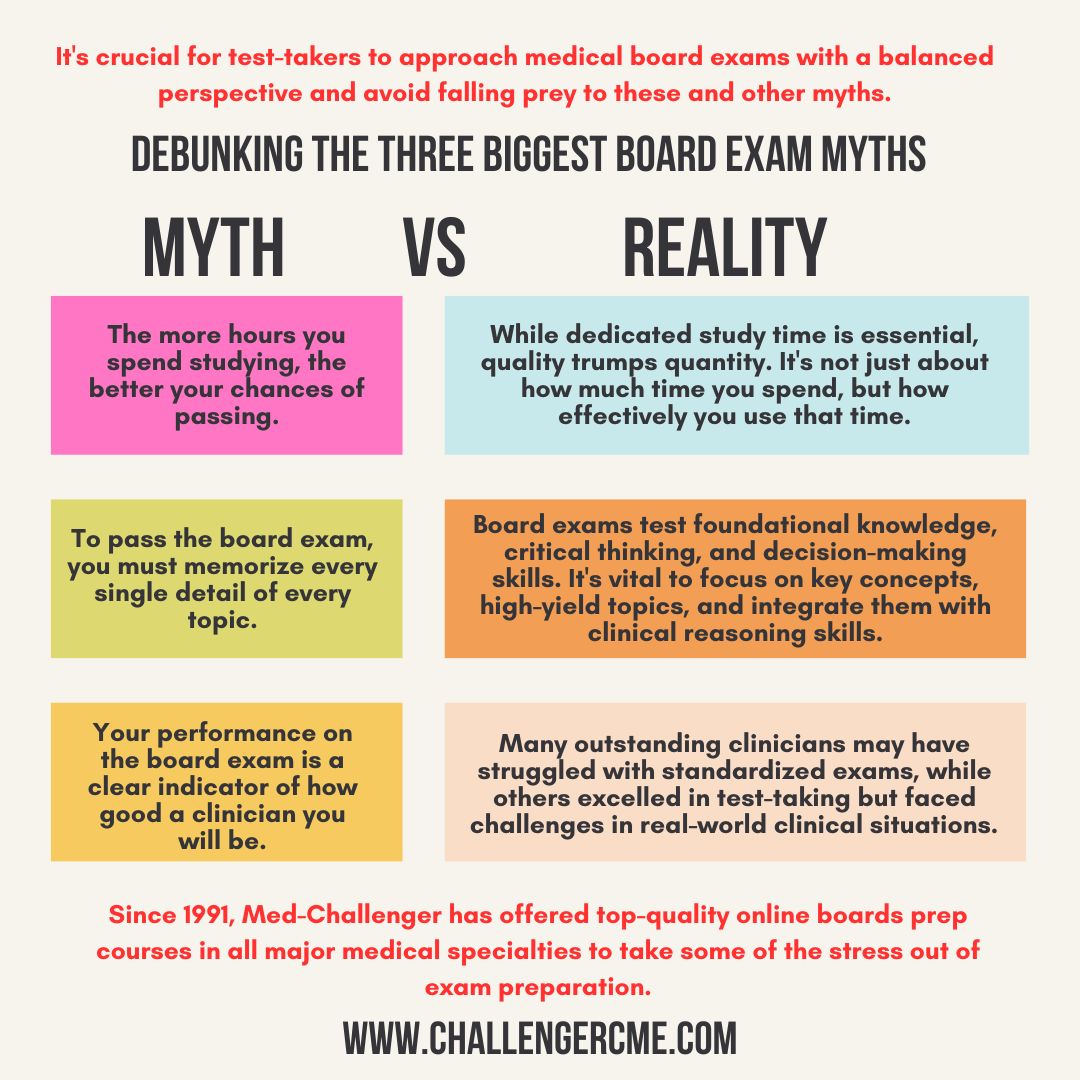The ABP Board Exam: A Comprehensive Guide
We're here to help you tackle the ABP board exam, a crucial milestone in your career as an pediatric medicine physician. Think of this exam as more than just a hurdle; it's a reflection of your dedication and skill. We'll walk you through the details of the ABP exam, providing insights, study tips, and strategies to bolster your preparation. With our support, you'll gain the confidence and knowledge needed to navigate this important challenge successfully.
Your Exam Structure
The ABP Certification Exam contains approximately 350 single-best-answer, standard multiple-choice questions that follow the ABP Blueprint. Each question is in paragraph form with an answer set containing one correct answer and three or four incorrect answers.
The exam is divided into four sessions each lasting one hour and 45 minutes, separated by scheduled breaks. The entire exam appointment takes approximately nine hours to complete.


2025 Exam Dates
You'll select your date and Prometric location when you sign up to take the exam.
ABP Become Certified Instructions
| General Pediatrics Regular Registration | January 16 - April 1, 2025 ($2,288) |
| General Pediatrics Late Registration | April 2 - May 20, 2025 ($2,633) |
| 2025 General Pediatrics Exam Dates | October 14, 15, or 16, 2025 |
Exam Features
Each general pediatrics examination adheres to the content outline that defines the categories — and the percentage of questions assigned to each category — contained in each certification exam.
All questions in all ABP examinations online longitudinal assessment are multiple choice. The ABP’s online tutorial with sample questions demonstrates how proctored exams in Prometric Testing Centers operate, but it is not intended to illustrate exam content. A more functional, but similar, tutorial with sample questions is available at Prometric testing centers at the beginning of your scheduled appointment.
To ensure exam security, the ABP develops new exam forms for each administration. To assess knowledge based on the most up-to-date medical information, exam questions are updated on a regular basis. A rigorous scoring procedure ensures that all candidates are held to the same passing standard, regardless of which version of the exam they receive.

.png?width=2000&height=2000&name=Untitled%20(89).png)
Question Styles
As a medical resident, you probably have horribly hard-won expertise at learning theory, but let's recap question types briefly.
Assessment questions: these are the "boards style questions". Assessment questions are designed determine your knowledge level, not really teach or remediate. They normally consist of (a) the correct answer, (b) two or more distractors that you'd guess at if you were vaguely familiar with the topic, and (c) one or more distractors that you'd guess if you were completely unfamiliar with the topic.
Teaching questions: these are the more in-depth case study questions, or complex questions that require thought. Teaching questions are designed to remediate and drive long term retention of material. Challenger uses both (and you can select the types you want to use for your tests).
If you're going to do an assessment of your knowledge level, work through it in short exams over topics, not in marathon sessions. If you've missed questions in the topics, then switch to completing all the questions in a topic, or mix the exams up into assessment and teaching questions.
Do ITE Scores Indicate Board Exam Scores?
To a degree. Your ITE scores provide more of a negative indicator of your potential boards exam score. If you did poorly on ITE's, you have your work cut out for you. If you did well on ITE's, it doesn't mean you'll score the same on the boards, but it is a positive indicator.
Start preparing early, pick a couple of good resources, and use them. Frequent short study sessions, done in a methodical manner, are going to do a lot more for you than cramming.
Content Specifications
Exam content is determined by a pre-established blueprint, or table of specifications. The blueprint is developed by ABP and is reviewed annually and updated as needed. Trainees, training program directors, and certified practitioners in the discipline are surveyed periodically to provide feedback and inform the blueprinting process.
The primary medical content categories of the blueprint are shown below, with the percentage assigned to each for a typical exam:

Pass Rates
Strategizing Your Preparation
Comprehensive Study Material
Choose study resources that are aligned with the ABP Blueprint, ensuring that you cover every topic in depth. Resources like Med-Challenger Pediatrics offer tailored preparation with a vast question bank of constantly updated content.
Mock Exams and Simulations
Simulated exams, such as Med-Challenger's Board Exam Simulator, part of the Pediatric Boards Prep Course, are instrumental in gauging your preparation level. They offer insights into your strong areas and those requiring improvement, enabling a focused preparation strategy.
Time Management
The ABP exam evaluates candidates under timed conditions. Practice with timed mock exams to enhance your time management skills, ensuring that you can navigate through the questions effectively and efficiently during the actual exam.
Navigating the Exam Day
Stay Calm
It’s natural to feel anxious. However, staying calm and composed is crucial to think clearly and make informed decisions during the exam. Knowing what to expect by checking out Exam Day: What to Expect can also help put your mind at ease.
Pace Yourself
The exam is structured to evaluate a broad spectrum of your skills and knowledge. Pacing yourself is crucial to ensure that every section of the exam is attempted with equal focus and concentration.
Review Your Work
If time permits, review your answers. Sometimes, a second look can offer new perspectives and insights.
-min.png?width=2000&height=2000&name=Untitled%20(91)-min.png)
Post Exam
Notification of Examination Results
Exam score reports are typically posted in your online portfolio within 60 days of the exam administration date. Although the examination is administered on the computer, we cannot provide you with your results at the testing center. We conduct extensive quality control activities before releasing results to ensure that the examination is psychometrically sound and the data are accurate.
In addition, without exception, each candidate's examination score is reported to his or her program director. The names of certified pediatricians, but not their scores, are sent to appropriate organizations and directories.
Passing Criterion and Scoring
There are multiple versions of each certifying examination, and a rigorous scoring procedure ensures that all candidates are held to the same passing standard regardless of which version of the exam they receive.
After administration, statistical analyses are conducted and a small number of questions may be deleted if they do not meet standards for statistical and psychometric validity. Deleted questions are not included when calculating candidates' final scores.
After deleted questions are removed, a candidate's total score is calculated as their number of correct answers. No points are deducted for incorrect answers and all questions are weighted equally.
Although the total score is based on the number of correct answers, all examination results are reported using a 1 to 300 scale, with 180 designated as the passing mark. This conversion is necessary because there are multiple versions of each exam. The versions may vary slightly in difficulty because they contain different questions, and it would be unfair to require someone who had a more difficult version of the exam to answer the same number of questions correctly as someone who had an easier version of the exam. A statistical process known as equating is applied to ensure that everyone is held to the same passing standard. Therefore, a candidate's score on the 1 to 300 scale does not reflect the percentage of questions answered correctly. Instead, a 180 represents the minimum level of knowledge required to pass the examination.



